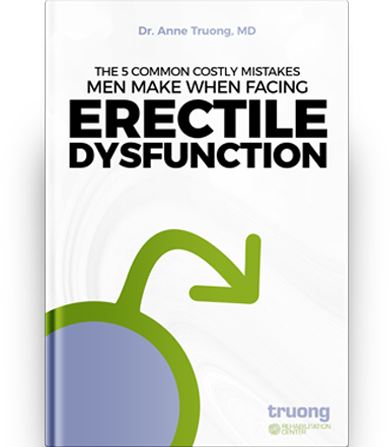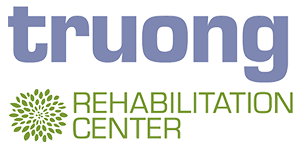People are starting to pay more and more attention to the food they eat and what they are putting into their bodies. But is consuming a balanced diet that meets the recommended servings of fruits, vegetables, whole grains, essential fats and protein enough to ensure ample nutrient intake? Probably not. The reason – Changes in our food supply.
A comparison study (1) evaluated potential changes in the average nutrient content of 43 fruits and vegetables between 1950 and 1999 and found the following results:
- 6% decrease in protein
- 16% decrease in calcium
- 9% decrease in phosphorus
- 15% decrease in iron
- 38% decrease in riboflavin
- 20% decrease in ascorbic acid
So how did this happen? Why is the food we fuel our bodies with less nutritious than it used to be?
There are several reasons for this drastic change in nutritional value such as:
Storage Time and Maturity at Harvest
Harvesting plants prior to proper maturity or delaying time between harvest and consumption diminishes nutrient content potential, particularly for fiber, vitamin A, vitamin C and phenolic compounds.(2,3) Additionally, nutrients can be harmed during storage or transportation. A 2004 study cited that storing tomatoes for 5 days decreased ascorbic acid by almost 13%.(4)
Genetic Selection
Modern fruits and vegetables are genetically selected, and in some cases modified, for shelf life, high yield, or other growth characteristics rather than their ability to extract or synthesize nutrients from the environment. Compared with wild plants, most modern varieties are higher in sugar and lower in protein, fiber, vitamins, minerals, and essential fatty acids.(5)
Atmospheric pollution
High levels of atmospheric pollutants can limit the plants ability to perform photosynthesis or overwhelm their detoxification capabilities. Elevated CO2 in the atmosphere due to pollution increases the levels of sugar and starch in plants, while decreasing protein levels. Pollutants can also affect the plants ability to extract nutrients from the soil, particularly calcium, magnesium and zinc.(6)
Fertilization quality
Fertilization of the soil with isolated key nutrients such as nitrogen, phosphorus and potassium, as opposed to more comprehensive fertilizers, can alter the composition of plants and lead to nutrient losses. For example, plants raised on high-potassium soil have higher levels of potassium, but reduced levels of calcium and magnesium.(7)
Environmental conditions
Differences in climate and soil type can cause large variations in nutrient content. Calcium-rich soil will produce plants higher in protein, while potassium-rich soils produce plants higher in carbohydrates. Regional rainfall can create wide variations in vegetable mineral composition, particularly for calcium, magnesium and potassium.(8)
Farming practices
Free-range animals produce meat with significantly higher levels of omega-3 fatty acids and conjugated linoleic acid.(9) Dairy products made from grass-fed animals are also higher in vitamin A, E and beta-carotene. (10) Feed-lot fed animals produce meat containing lower levels of these critical nutrients. Antibiotics fed to these animals can also result in altered bacterial profiles, potentially altering gut microflora.(11)
Industrial waste and contamination
Chemical residues and industrial waste, including heavy metals, pollute the land, water and food supply.(12) A 2004 analysis of 2,644 individuals found that “most people in the U.S. carry a significant body burden of pesticides and pesticide metabolites,” with the average person testing positive for 13 out of the 23 analyzed. Estrogenic compounds, such as DDT and its metabolites, polychlorinated biphenyls (PCBs) and p-nonyl-phenol and bisphenol-A, are of particular concern.(13) Processing and neutralizing these toxins require increased levels of amino acids, vitamins and minerals.*
The American Diet Needs Improving
Data from the National Health and Nutrition Examination Survey (NHANES) indicates that only 40% of Americans ate the recommended five or more servings of fruits and vegetables per day.(14) Fruits and vegetables have been associated with overall health.(15) However, the standard American diet is typically characterized by a high intake of:
- Saturated fat
- Red meat
- Refined grains
- Sugar
Nutrition surveys show shortfalls in many nutrients, including calcium, magnesium, potassium, vitamin C, vitamin E and vitamin K.(16) Diets are also generally low in essential fats, which are critical for healthy cellular function and cardiovascular health.(17)
Essential fats include:
- Omega-3 fatty acids: fish, flaxseed and walnuts
- Omega-6 fatty acids: vegetable oils, grains and seeds
Americans typically consume a diet that has a ratio of 15:1 omega-6 to omega-3 fatty acids. Research indicates that humans evolved with a dietary ratio closer to 1:1.(18)
To make sure you are getting the right nutrients, follow these simple guidelines:
Choose nutrient-dense foods
Whole grains and brightly colored fruits and vegetables typically have high nutrient levels. Choosing organic foods and lean, free-range sources of protein and fat is also important.
Preserve nutrients during cooking
Avoid overcooking food to optimize nutrient retention. Whether baking, grilling, or steaming, fruits and vegetables should still be colorful and slightly crisp when consumed.(19)
Buy fresh local foods
Reducing the amount of time foods are in storage or transit helps to preserve the naturally occurring nutrients in foods. Less transit also means less CO2 generated in the atmosphere.
Take high-quality nutritional supplements
Choose a high-quality, hypoallergenic nutritional supplement brand that is free of coatings, binders, artificial colors, added preservatives, hydrogenated oils or other unwanted excipients. These undesirable ingredients can diminish the bioavailability or health-promoting potential of the nutrients. Unlike foods, supplements also have the benefit of providing consistent levels of vitamins and minerals.(20) For specific health concerns, it is important to choose supplements that reflect active ingredients and dosage levels used in studies.*
-
- Davis DR, Epp MD, Riordan HD. Changes in USDA food composition data for 43 garden crops, 1950 to 1999. J Am Coll Nutr. 2004 Dec;23(6):669-82
- Punna R, Rao Paruchuri U. Effect of maturity and processing on total, insoluble and soluble dietary fiber contents of Indian green leafy vegetables. Int J Food Sci Nutr. 2004 Nov;55(7):561-7.
- Marín A, Ferreres F, Tomás-Barberán FA, Gil MI. Characterization and quantitation of antioxidant constituents of sweet pepper (Capsicum annuum L.). J Agric Food Chem. 2004 Jun 16;52(12):3861-9.
- Molyneux SL, Lister CE, Savage GP. An investigation of the antioxidant properties and colour of glasshouse grown tomatoes. Int J Food Sci Nutr. 2004 Nov;55(7):537-45.
- MP Scott, JW Edwards, CP Bell, et al. Grain composition and amino acid content in maize cultivars representing 80 years of commercial maize varieties. Maydica. 2006;51:417-423.
- Taub DR, Miller B, Allen H. Effects of elevated CO2 on the protein concentration of food crops: a meta-analysis. Global Change Biology. Mar 2008;14(3):565-575.
- Bear FE, Toth SJ, Prince AL. Variation in mineral composition of vegetables. Soil Sci Soc Am Proc. 1948;13:380-384.
- Albrecht, WA. Our Teeth and Our Soils. 1947. 6(4):199-213.
- Daley CA, Abbott A, Doyle PS, et al. A review of fatty acid profiles and antioxidant content in grass-fed and grain-fed beef. Nutr J. 2010; 9: 10.
- Searles SK, Armstrong JG. Vitamin E, vitamin A, and carotene contents of Alberta Butter. J Dairy Sci. 1970 Feb;53(2):150-4.
- Forslund K, Sunagawa S, Kultima JR, et al. Country-specific antibiotic use practices impact the human gut resistome. Genome Res.2013; 23: 1163-1169.
- Wuana RA, Okieimen FE. Heavy metals in contaminated soils: a review of sources, chemistry, risks and best available strategies for remediation. ISRN Ecology. 2011; 402647: 1-20.
- Schafer KS, Reeves M, Spitzer S, Kegley SE. Pesticide Action Network North America. May 2004.
- Guenther PM, et al. Most Americans eat much less than recommended amounts of fruits and vegetables. J Am Diet Assoc. 2006 Sep;106(9):1371-9.
- Bazzano LA, He J, Ogden LG, et al. Am J Clin Nutr. 2002 Jul;76(1):93-9.
- Fulgoni VL, Keast DR, Bailey RL. Foods, Fortificants, and Supplements: Where Do Americans Get Their Nutrients? J Nutr. Oct 2011; 141(10):1847-1854.
- Harris WS, Mozaffarian D, Lefevre M, et al. Towards establishing dietary reference intakes for eicosapentaenoic and docosahexaenoic acids. J Nutr. 2009 Apr; 139(4):804S-19S.
- Simopoulos AP. Evolutionary aspects of diet, the omega-6/omega-3 ratio and genetic variation. Biomed Pharmacother. 2006 Nov; 60(9):502-7.
- Galgano F, Favati F, Caruso M, et al. The influence of processing and preservation on the retention of health-promoting compounds in broccoli. J Food Sci. 2007 Mar;72(2):S130-5.
- Fletcher RH, Fairfield KM. JAMA. 2002 Jun 19;287(23):3127-9.
*These statements have not been evaluated by the Food and Drug Administration. These products are not intended to diagnose, treat, cure, or prevent any disease










